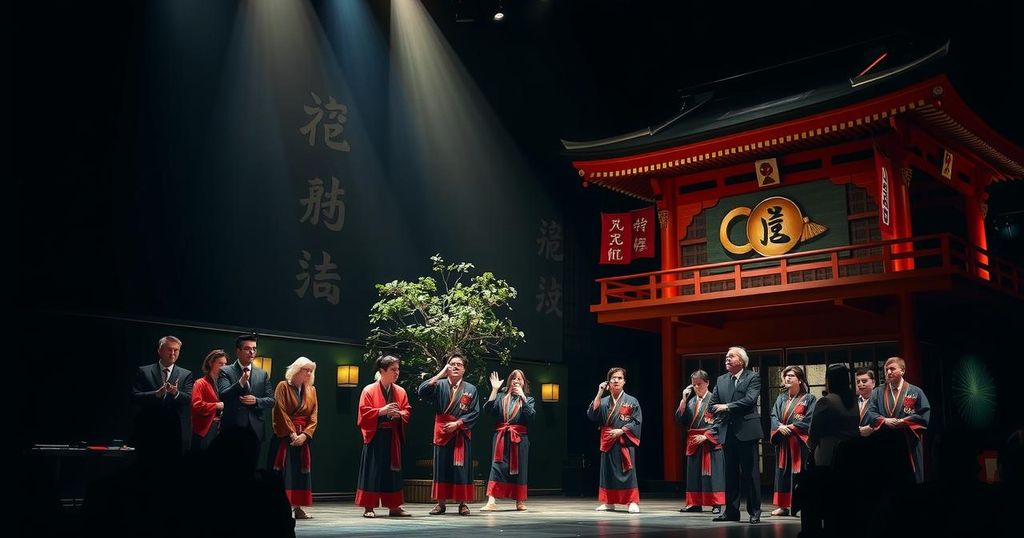The Kyoto climate agreement of 1997 marked a significant moment in the global fight against climate change, yet subsequent summits have revealed ongoing challenges posed by fossil fuel lobbyists. The narrative highlights John Prescott’s announcement of the deal, the obstructive tactics of negotiators like Don Pearlman, and the mixed perceptions of agreements achieved. This struggle is captured in the upcoming Royal Shakespeare Company play, “Kyoto.”
The narrative surrounding Kyoto’s landmark climate agreement in 1997, marked by the palpable emotions of anger, frustration, and subsequent triumph, has become a repetitive motif in climate summits over the past 27 years. On December 11, 1997, John Prescott, then the UK Environment Secretary, famously awakened slumbering journalists with the exhilarating announcement that developed nations had reached a consensus on cutting greenhouse gas emissions for the first time. This moment encapsulated the blend of exhaustion and elation felt by delegates striving to save the planet from escalating climate crises.
Yet, the untold story behind Kyoto and subsequent conferences is the obstructive influence wielded by negotiators representing the fossil-fuel industry, whose tactics involve delaying and complicating progress. One notable figure in this regard was Don Pearlman, a New York attorney acknowledged for his adversarial strategies, who significantly hindered advancements in climate policy until his passing in 2005. His actions have established a legacy of discontent, where agreements are often perceived as insufficient by idealists but regarded as pragmatic victories by others. This complex interplay is encapsulated in the Royal Shakespeare Company’s upcoming play, “Kyoto,” which portrays Pearlman’s detrimental impact within the unfolding drama of climate negotiations.
The Kyoto Protocol, initiated in 1997, was a foundational international treaty that aimed to reduce greenhouse gas emissions and combat climate change, marking a significant shift in global environmental policy. The negotiations surrounding this treaty highlighted the divisions between developed and developing nations, as well as the substantial influence of industries reliant on fossil fuels. Understanding the dynamics of such summits is crucial, as they often reflect ongoing struggles between environmental imperatives and economic interests. Plays and dramatizations, such as the one produced by the Royal Shakespeare Company, seek to capture these complexities while raising awareness about the broader implications of climate negotiations and their impact on future policy.
In summary, the emotion-laden history of the Kyoto climate agreement stands as a testament to the ongoing struggle against climate change. Despite the triumph of reaching agreements, the persistent obstructionism from fossil fuel lobbyists, epitomized by figures like Don Pearlman, poses significant challenges to meaningful progress. The narrative presented in the Royal Shakespeare Company’s play serves as a poignant reminder of the real-life impacts these negotiations bear on global environmental efforts. The ongoing dialogue about climate change underscores the need for sustained commitment and innovative solutions in the face of industry resistance.
Original Source: www.theguardian.com






